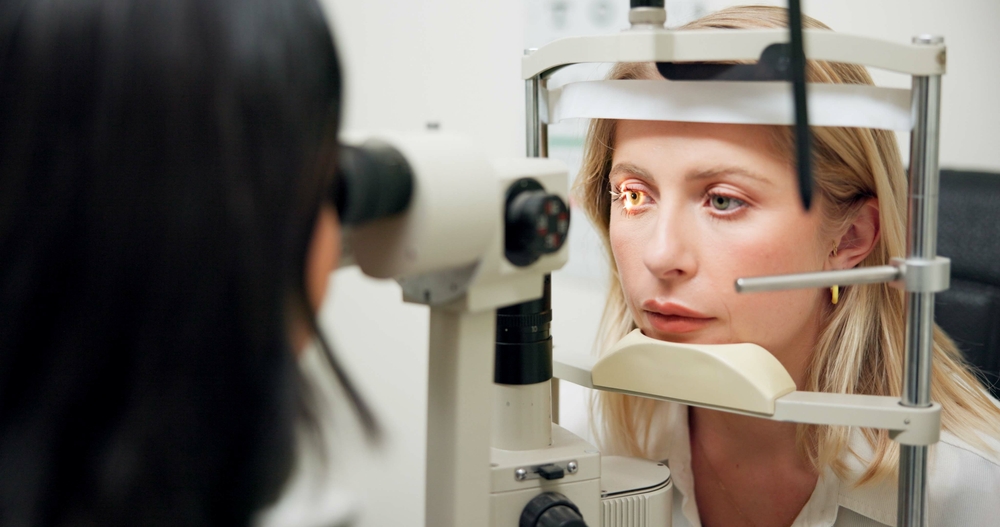
Understanding the difference between a regular eye exam and a contact lens exam is crucial. This is particularly important if you are considering getting contacts or already wearing them. Both exams can help an eye doctor assess a patient’s vision and eye health. However, they focus on meeting different needs of a patient.
What Is a Regular Eye Exam?
This exam helps you maintain your eye health and clear vision. It includes:
Vision tests to assess clarity at various distances and check if corrections are needed.
Eye health checks for diseases like glaucoma, cataracts, and macular degeneration.
Prescription updates to determine if changes are needed for your glasses.
Eye function tests to check how well your eyes work together.
A regular eye exam helps you manage your general eye health better as it can detect eye conditions early. It is generally recommended annually but may vary based on age, health conditions, and risk factors for eye diseases.
What Is a Contact Lens Exam?
A contact lens exam expands on the regular eye exam to assess your suitability for contact lenses. It includes:
Detailed Measurements: This involves the accurate measurement of cornea size and the curvature to ensure the correct lens fit.
Contact Lens Prescription: This differs from a glasses prescription significantly. It shows specific measurements to how contact lenses sit on your eyes.
Lens Fitting and Comfort Evaluation: This assesses how well the lenses fit your eyes. The eye doctor also checks if there is discomfort or if adjustments are needed.
Instruction on Care: This provides guidance on how to insert and remove your contact lenses, and how to care for them properly.
Contact lens wearers require more frequent follow-up visits than those who undergo regular exams. That way, you can make sure that your lenses still fit well and there is no irritation.
Why the Difference Matters
The choice between the two hinges on your specific vision correction needs and eye health priorities.
For Glasses Wearers
If you only need glasses for vision correction, a regular eye exam usually suffices. During this exam, your complete eye health is thoroughly evaluated. Any necessary adjustments to your vision correction are made. Your glasses prescription is updated if needed. This process ensures your eyewear effectively meets your vision requirements.
For Contact Lens Users
If you wear or are considering contact lenses, a contact lens exam is essential. This specialized exam includes precise measurements of your eye’s surface so that your contact lenses fit perfectly on your eyes.
This is an important exam for your eye health as it can show that ill-fitting lenses can cause discomfort, infections, and other health issues.
Considering Eye Health Risks
It is also vital to consider personal health factors, such as diabetes or a family history of glaucoma or macular degeneration, that might affect your vision. These conditions require more frequent and detailed eye examinations. Diabetes patients, especially, often require rigorous monitoring.
Consulting With Professionals
Always discuss with your eye care professional which exam best suits you. They can provide guidance based on your age, health conditions, and family history. They will also consider whether you prefer glasses or contact lenses.
For more on contact lens exams and regular eye exams, visit Battleground Eye Care at our Greensboro, North Carolina, office. Call (336) 564-6800 to schedule an appointment today.
https://www.webmd.com/eye-health/what-to-expect-checkup-eye-exam-adults






